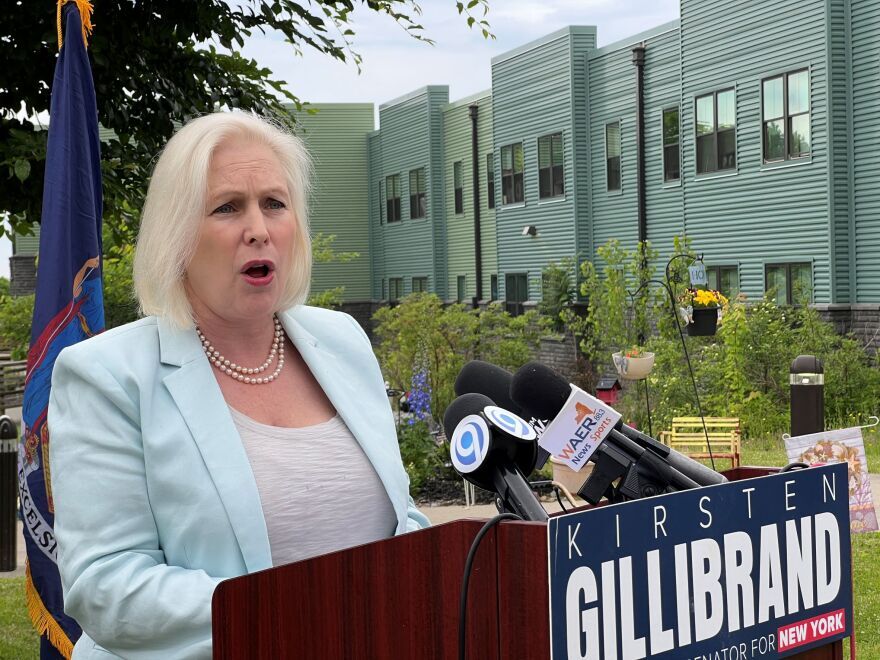WRVO - U.S. Sen. Kirsten Gillibrand (D-NY) is hoping the Senate votes this week on legislation that helps veterans who became sick after exposure to toxic burn pits.
During the Iraq and Afghanistan wars, the way to get rid of trash was to dig a hole in the ground, fill it with garbage, medical waste and any other trash, douse it with jet fuel, and set it on fire. Anyone in the vicinity would breathe in the thick black smoke. And when many service members came home they started suffering from rare cancers, lung diseases and respiratory illnesses and they felt there was a connection with those toxic burn pits.
The problem is, in order to get medical coverage from the Veterans Administration, they would have to demonstrate that the illness was caused by military service. Gillibrand said that changes with the legislation expected to go to Congress this week.
"This creates a presumption that if you served in one of these places that had burn pits, and you get sick, you get covered,” Gillibrand said while in Syracuse Monday. “No longer do individuals have to get the proof and requirements about what caused what."
Gillibrand has been working on this legislation since 2020. She said one thing that’s helped it move along are studies of 9/11 victims that identified 20 illnesses that are related to toxic exposure.
"We have monitoring and scientists working on this all the time. That’s what the 9/11 bill did,” said Gillibrand. “And so we know a lot about the type of cancers created from these kind of toxins. We also have data from the military itself, because they did test air quality in a lot of these places. We’re trying to get that data available."
Gillibrand figures more than 3.5 million people were exposed to toxins from these trash pits.


